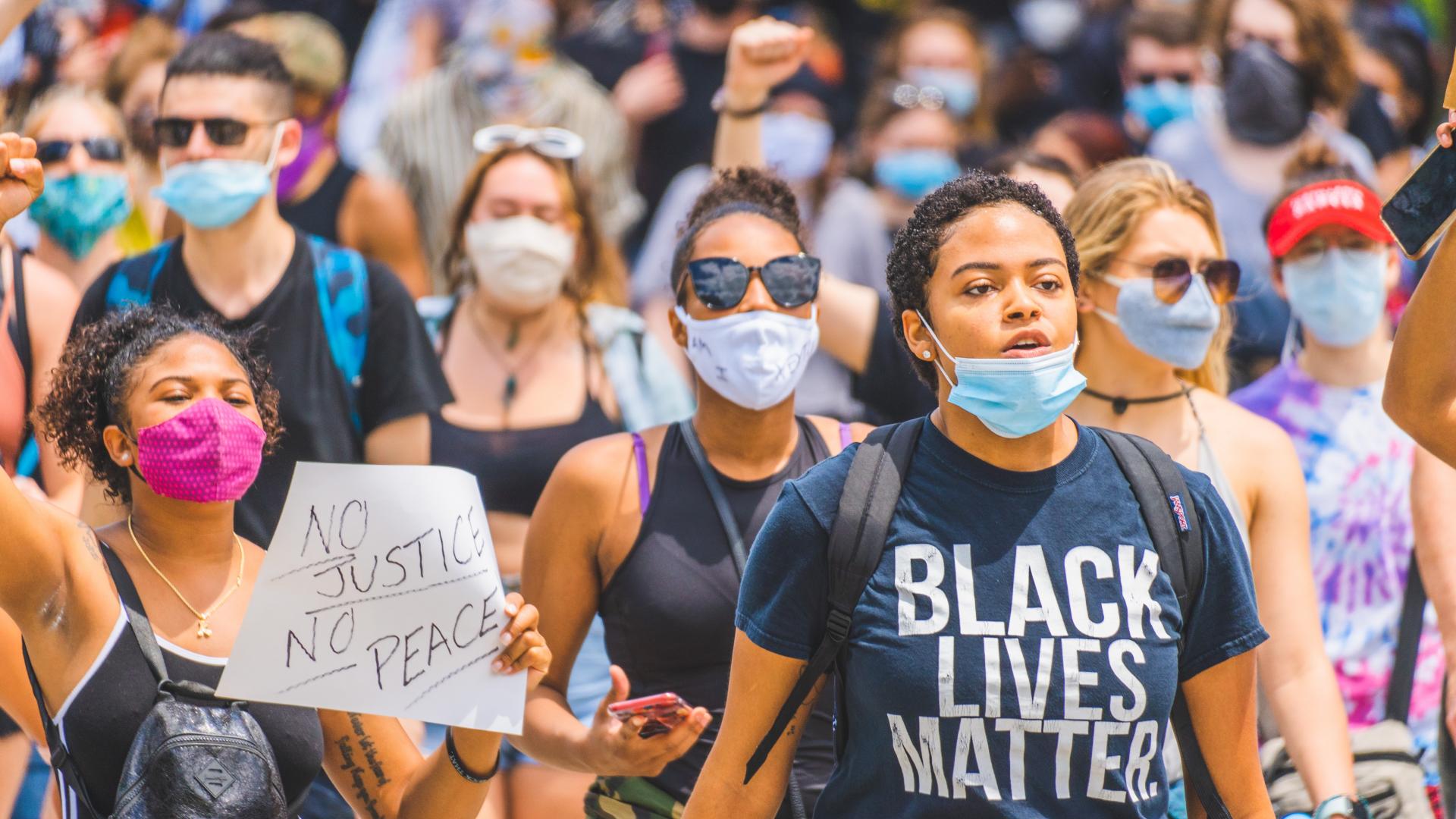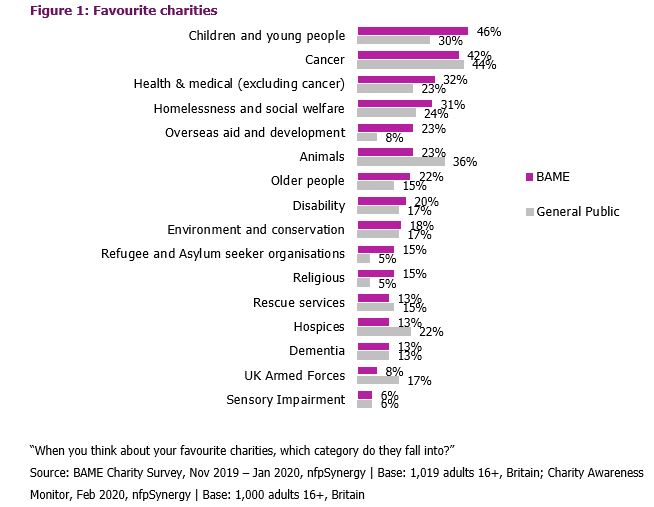We are witnessing a huge amount of attention on the Black Lives Matter movement and racial inequality across the world right now. It has sparked a conversation and a call for learning about racism that feels different this time. We have seen many charities and companies grapple with how to respond to this moment. Staff, volunteers, supporters and beneficiaries have raised questions about whether their charities have done enough to challenge the system and to reflect the society they work in. Staff have been having similar conversations at nfpSynergy. We thought one of the best ways we could contribute to this discussion was by sharing some of the research we carried out in November last year with the BAME community living in the UK.
Although the BAME community are one of the key audiences for charities as donors, campaigners, users of services and victims of discrimination, they are also one of the most under-researched groups, together with the LGBT+ communities. To that end, we wanted to find out more about how they engage with charities.
Our sample was made up of 1,000 people from BAME communities, approximately representative of the BAME population of the UK in terms of ethnic background, gender and age. The fieldwork ended up taking almost 6 weeks - as a relatively small percentage of the total population, they were indeed difficult to research in their own right. The results were so interesting, it was worth every bit of effort. We will be repeating a similar study with the LGBT+ community in July this year, and you can download the link at the bottom of the page for some more information if you would like to participate.
This was our very first attempt to understand this population’s perceptions of and attitudes towards charities and charitable engagement. Our findings showed that the BAME population were far more likely to volunteer than the general public – 32% had given time as a volunteer in the last 3 months compared to 21% for the UK public. We also found that trust in many institutions was likely to be lower, such as The Armed Forces, small businesses and the police, although trust in charities was similar to the overall public at 61%.
The greatest difference we found in this research was in favourite causes. The BAME population were far more likely to prefer charities working with children and young people (46% vs 30%), overseas aid and development (23% vs 8%), religious charities (15% vs 5%) and refugees and asylum seekers (15% vs 5%). We have deliberately avoided trying to analyse why any differences exist between our BAME and general public research. That is for more detailed qualitative research or others to speculate.
This is the time for us all to learn from the BAME community as we continue the difficult process of tackling inequality, structural racism, racism and poverty. We believe one of the best ways of doing so is through research. You can download the findings of this research in the download link below.
In the next couple of months, we will be carrying out a similar survey of the LGBT+ community. Please get in touch with Secil.Muderrisoglu@nfpsynergy.net if you have any questions about this research.
For 6 years 60% of our advice
For 6 years 60% of our advice seeking clients are BaMER of which Black African is consistently our largest advice seeking community. Over this time we have seen female advice seekers increasing 60-65% and male advice seekers decreasing (25-40%) where for at least 10 years before the gender balance was about 50-50. We attribute these trends to welfare reform. Two years ago we identified a clear data trend across all top advice areas that the significant single advice seek trend is Black African Female with dependent child/ren. Our volunteers mirror this trend in that the majority of our volunteers are Black African Females
"We have deliberately avoided
"We have deliberately avoided trying to analyse why any differences exist between our BAME and general public research. That is for more detailed qualitative research or others to speculate." This certainly does call for more detailed qualitative research. Please let's not rely on speculation.
What will nfpSynergy be doing to disseminate these basic findings and to ensure that they can be useful - that they can help progress the "difficult process of tackling inequality, structural racism, racism and poverty"?
Hi Rosy, thanks for your
Hi Rosy, thanks for your comment. We have shared the findings from this research with all of the charities we work with and have also made them available publicly here: https://nfpsynergy.net/sites/default/files/hosted-downloads/BAME%20char…
I wanted to say thank you for
I wanted to say thank you for this research and the stats, I work for an animal welfare charity and have been trying to work out why we do not reflect the local community in our teams of staff and volunteers and in its diversity. It is a large piece of work we are embarking on to make sure we are educated and aware. It is not a quick fix but it must be done.


